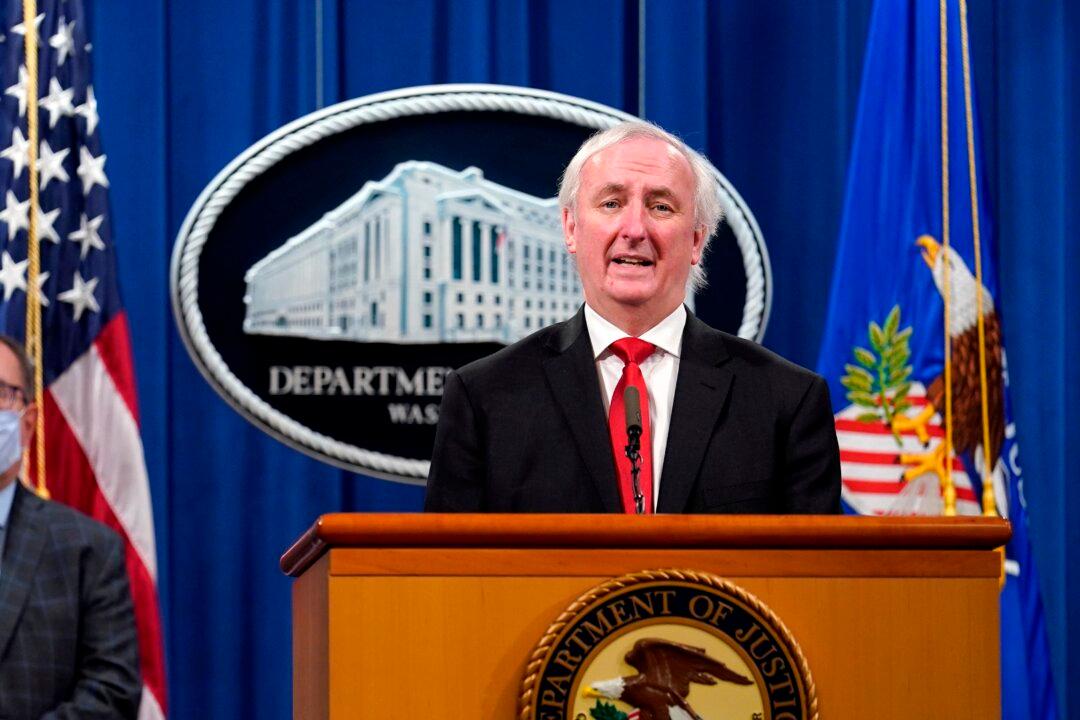The Department of Justice’s second-in-command on Sept. 17 released a memo standing by an earlier directive made by Attorney General William Barr asking federal prosecutors to consider sedition charges against violent protesters.
Deputy Attorney General Jeffrey Rosen issued the letter to the nation’s federal prosecutors Thursday, saying he and Barr are urging federal prosecutors to use the full definition of “seditious conspiracy” to hold to account individuals involved in such activity amid the civil unrest plaguing the nation, according to the Wall Street Journal.





